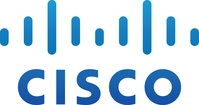
-
The 2024 Cisco Consumer Privacy Survey* reveals most consumers (53%) are now aware of privacy laws, and informed consumers feel significantly more confident about protecting their data (81% vs. 44%).
-
63% of consumers believe AI can be useful in improving their lives, and 59% say strong privacy laws make them more comfortable sharing information in AI applications.
-
30% of Generative AI users enter personal or confidential information into these tools despite 84% saying they are concerned about data entered in GenAI going public.
Today, Cisco released its 2024 Consumer Privacy Survey, an annual global review of consumer perception and behavior regarding data privacy. This year’s survey highlights the critical role of privacy rights awareness in fostering consumer trust and confidence in emerging technologies like Artificial Intelligence (AI).
Also Read: Protecting APIs at the Edge
Consumer awareness is on the rise. This year, 53% report being aware of their national privacy laws, a 17-percentage point increase compared to 2019. Informed consumers are also much more likely to feel their data is protected (81%) compared to those who are unaware (44%).
“Our survey highlights the importance of privacy awareness in building consumer trust in brands and AI technologies,” says Harvey Jang, Cisco Vice President and Chief Privacy Officer. “Nearly 60% of consumers aware of privacy laws are comfortable using AI. Broadening awareness and educating consumers about their privacy rights will empower them to make informed decisions and foster greater trust in emerging technologies.”
The opportunities and challenges of Generative AI
The survey reveals that 63% believe AI can be useful in improving their lives. The use of Generative AI (GenAI) has nearly doubled, with 23% of respondents using it regularly, up from 12% last year. However, 44% of surveyed consumers remain unaware of GenAI. While users say they are gaining significant value from GenAI supporting content creation work, they are concerned about safety, potential misuse and societal risks.
“AI’s growing influence in our daily lives brings attention to the need for its responsible and safe use,” says Dev Stahlkopf, Cisco’s Chief Legal Officer and Executive Vice President. “78% of surveyed consumers feel that it is the responsibility of businesses to employ AI ethically, which underscores the vital relationship between Responsible AI and consumer trust.”
Focusing on privacy, 30% of GenAI users say they enter personal or confidential information, including financial and health details, into GenAI tools. This is despite 84% being concerned about that data going public.
Young adults take action to protect privacy, seniors fall behind
Privacy and data protection has evolved from relative obscurity to a customer requirement with more than 75% of consumers saying they won’t purchase from an organization they don’t trust with their data. This translates into concrete actions as more consumers are becoming “Privacy Active,” particularly younger ones. To safeguard their privacy, 49% of consumers aged 25-34 have switched companies or providers over their data policies or data-sharing practices, compared to just 18% of those aged 75+.
Also Read: A Comprehensive Guide to DDoS Protection Strategies for Modern Enterprises
The survey found that consumers aged 25-34 are also most aware of their privacy rights (64% vs. 33% of those aged 65+). It also shows a significant increase (36% vs. 28% last year) in how consumers exercise their right to access, correct, delete or transfer their personal data via Data Subject Access Requests (DSARs). Once more, younger consumers lead the way, with 46% of them taking these actions, compared to only 16% of those aged 65+.
In addition, consumers are leveraging security tools to safeguard their data. In the 12 months prior to the survey, 67% reviewed or updated their privacy settings in apps or platforms. 68% say they use multi-factor authentication, and 61% use a password manager to protect and keep track of their passwords.
“Data is an asset we all must actively work to protect,” says Anthony Grieco, Cisco Senior Vice President and Chief Security and Trust Officer. “From using multi-factor authentication to making sure that users know very clearly and easily who can access information as it is shared, we are encouraged by respondents taking action to protect their personal information.”
Consumers support strong privacy protections and favor more consistent rules
A significant majority (70%) of all consumers surveyed believe that privacy laws have a positive impact, with only 5% perceiving a negative impact. They increasingly favor privacy protections, with 77% of respondents supporting similar rules across countries and regions to ensure baseline privacy protections. In the US, 81% of respondents favor a US Federal Privacy law.
[To share your insights with us as part of editorial or sponsored content, please write to psen@itechseries.com]


